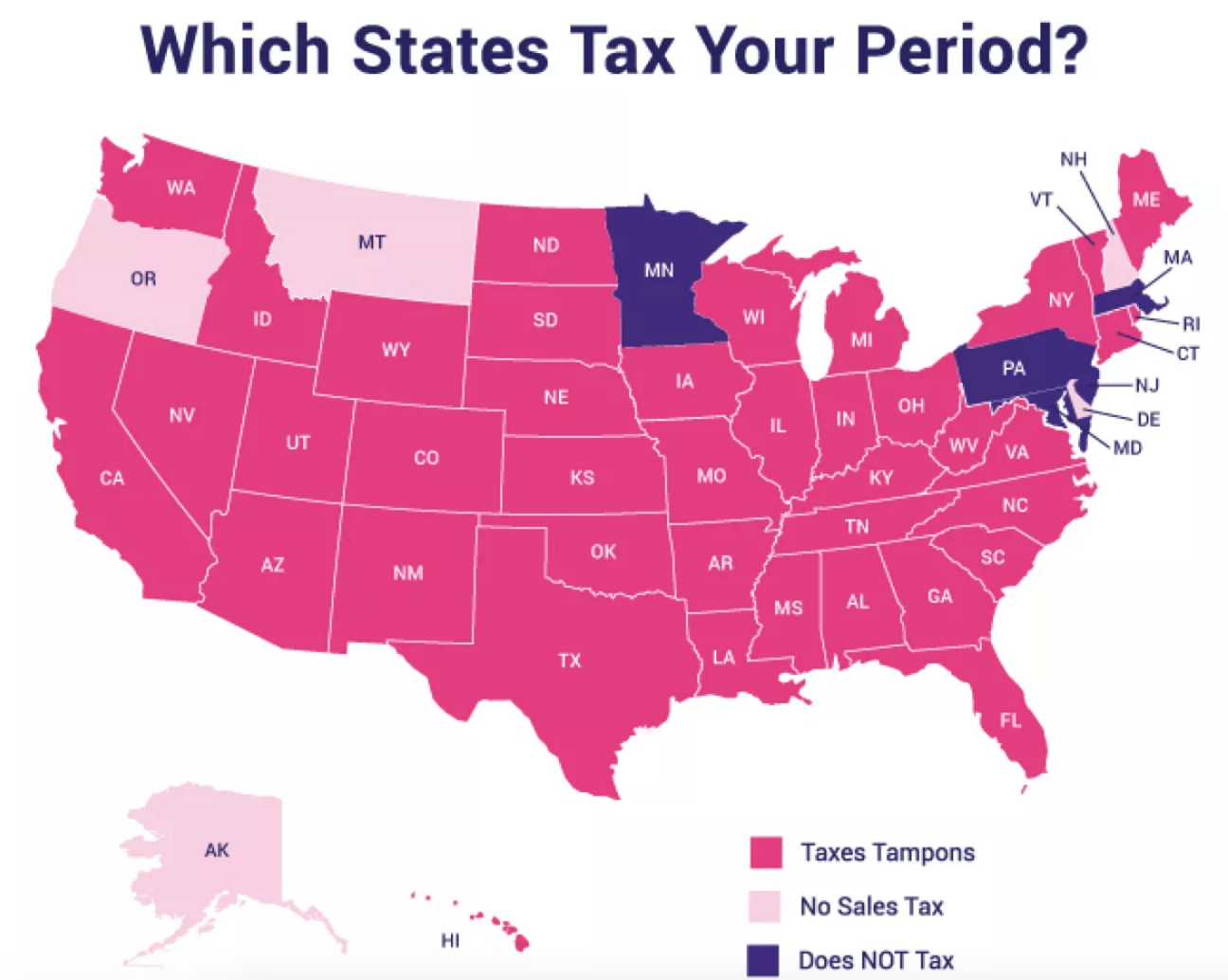Why Your Period Is Being Unfairly Taxed

By:
If you have a period, it’s likely you’re being taxed for it. Fusion reports that 45 out of 50 states in America add sales tax to tampons, sanitary napkins, and other feminine hygiene products because they are legally consider a “luxury,” despite the fact that periods are involuntarily bodily functions.
It can be especially troublesome for low income women who can't afford feminine hygiene products. The New York Times notes that a year's supply of tampons and pads costs upwards of $70 per year, and feminine hygiene products are not covered by food stamps. Earlier this year, Time reported that in the U.S. tampons are more widely taxed than candy.
RELATED: Here Are 4 Cultures That Actually Respect Menstrual Cycles
One new video from a team of British filmmakers underlines just how ridiculous it is to classify hygiene products in the same lane as luxury items like jewelry or designer clothing.
The mock commercial is a satire on actual luxury good commercials, like those for perfume or handbags, but the issue itself is a serious one.
The U.S. Department of Health and Human Services reports that the average woman has a period for several days every month for between 30 to 40 years. The U.S. Census reports that as of July 2013, there are more than 160 million women in the country.
RELATED: New 'Normal Barbie' is Fighting Menstruation Taboos
Of those women, millions are living in the average age range where it is necessary to manage their menstrual cycles. A recent Huffington Post report estimates that 70 percent of women use tampons, and the cost of properly using them over a lifetime costs nearly $2,000. If panty liners are added into the equation, another $400+ are added in cost.
An article Cosmopolitan notes that there are important benefits to removing the tax on tampons:
"Jennifer Weiss-Wolf, vice president for development at the Brennan Center for Justice and an advocate for the elimination of the tampon tax, told Cosmopolitan.com that making tampons duty-free does three major things: It lifts a small financial burden from all women, promotes gender equality, and 'opens the door to what broader policy reforms could look like and what the problem really does look like for low-income women.'"
But not everyone agrees that these products are necessary.
RELATED: Key and Peele's Hilarious Response to Men Who Hate Periods
“Tampons and pads are used for feminine hygiene and not for use in the diagnosis, cure, mitigation, treatment, or prevention of feminine diseases,” said a representative for the Idaho State Tax Commission to Fusion in an email.
Abolishing the sales tax of tampons is a little more complicated in the U.S. because tax laws vary by state, Fusion reports, so cutting the tax would mean reform in all 50 U.S. states. Fusion created a map to illustrate which states tax feminine hygiene products, and which don’t.
 Fusion - fusion.net
Fusion - fusion.net
RELATED: The Uncomfortable, Taboo Reality Facing Many Female Prisoners
The “tampon tax” doesn’t just affect American women, either. According to Think Progress, public pressure forced the tampon tax out of Canada, but the Independent reports that an amendment to stop the “tampon tax” failed last month in British parliament (and social media was quick to respond).
Despite the taboos surrounding menstruation, having a period is an uncontrollable natural body function of a woman, and advocates for abolishing the tampon tax believe it should be treated under the law as such. To join the conversation, look for the hashtag #StopTaxingMyPeriod on social media platforms.
